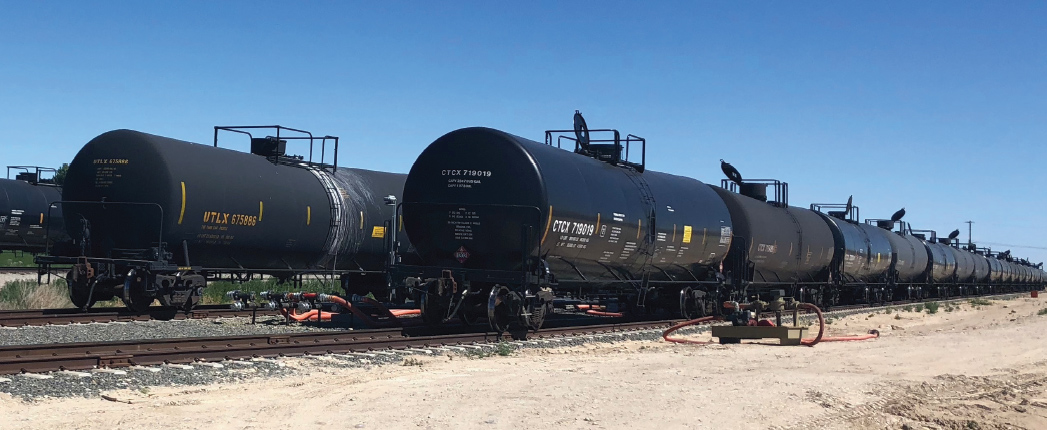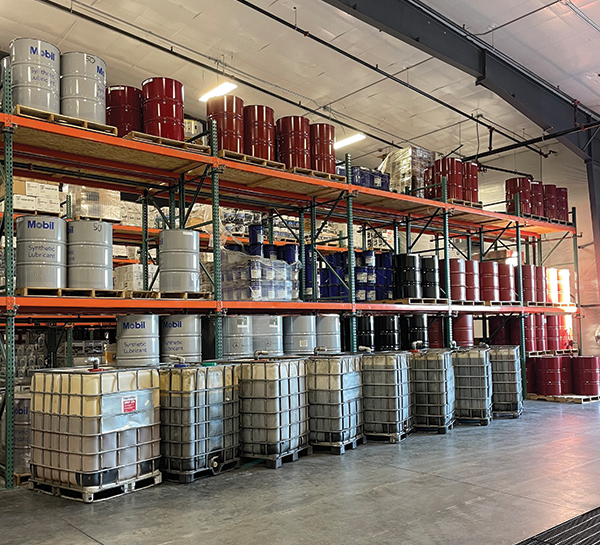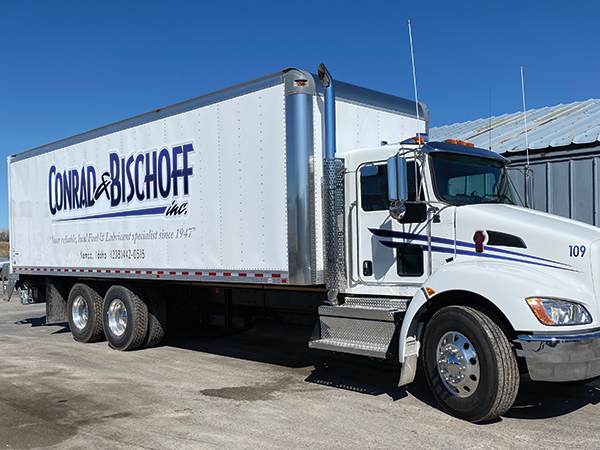
In the world of business, change is both fast and inevitable, and no group is more aware of that than the lubricants industry. But how specifically has the landscape of the lubricants industry changed in recent years, and which factors have contributed to those changes?
Top of mind right now for many industry players is consolidation. Recent years have seen a notable uptake in the number of larger companies that are growing quickly by strategically buying smaller ones. Why has the industry been consolidating at such a rapid pace, and what does it mean for the future of the industry?
Lubes’n’Greases talked with Canadian lubricants and fuel distributor Parkland and its most recent purchase, Conrad & Bischoff, about the industry’s prominent acquisition culture and how the two companies are using it to their advantage.
Parkland, based in Calgary, Canada, is an independent supplier and marketer of fuel and petroleum products, including lubricants. It is also a major convenience store operator. Since its foundation 50 years ago, the company, which employs 5,000 people, has expanded to operate in 25 countries in the Western Hemisphere.
Parkland was “largely Canadian until about 10 years ago, when it started branching out,” said Doug Haugh, president of Parkland USA. Since then, the company has been very active in terms of inorganic growth, acquiring 14 companies in the past 36 months.
“Most of those acquisitions have had lube operations,” Haugh added.

Among the companies acquired is Conrad & Bischoff, which Parkland acquired on April 7 this year. The company, based in Idaho Falls, employs 500 employees and operates in Idaho and western Wyoming. According to its website, it is the exclusive distributor of Mobil products in Idaho.
Other Parkland acquisitions include Rhinehart Oil, based in American Fork, Utah; Tropic Oil, based in Miami, Florida; Story Distributing Co., based in Bozeman, Montana; and Carter Oil, based in Flagstaff, Arizona.
A Consolidation Craze
“I would say that the pulse or the tempo in the industry is that larger companies are buying smaller companies right now,” said Jake Searle, general manager of Conrad & Bischoff.
Haugh agreed: “The industry is consolidating. That’s going to continue certainly for the foreseeable future. Twenty years ago, you had about 16,000 distributors that ran trucks, had warehouses and serviced their towns or cities. Now you’re down to probably about 3,000, give or take. We expect that in the next 10 years that’s going to largely play out to where there’s a couple hundred companies left that are much more sizeable than the thousands that have serviced the market.”
What is driving this mass consolidation, though? Haugh identified two major drivers of consolidation in the industry. “One is generational,” he said.
Most of the companies being bought are family-owned businesses that were established after World War II, Haugh said. “What that means is we’re now going through the handoff between the second generation and the third generation of ownership,” he said. “The success rate of that handoff is single digits in terms of percentages. So typically, maybe 10% of companies will make that transition successfully. Most end up selling or dissolving. Some go out of business.”
Decreased demand in the industry is the second driver of consolidation. “The industry isn’t a growth industry anymore,” Haugh said. “For much of the industrialization of the U.S., lubes, fuels and convenience were all growth businesses. There were more people, more customers, more demand. It basically grew at 1% per year for over 100 years, so there was always new business, new customers, new things to do. That’s not the case anymore. So when you reach that peak and start down the other side, that necessitates consolidation. There are market drivers in the sense of declining demand over the next several decades.”

A Conrad & Bischoff delivery box truck. © Conrad & Bischoff
A major advantage of consolidation is that it allows companies to grow quickly, and many companies, including Parkland, have consciously integrated the practice into their growth strategies. “We’re one of those consolidators that continues to bring new team members and new businesses into the fold, like Conrad & Bischoff,” Haugh said. “We expect to do that for the foreseeable future.”
However, Parkland isn’t relying solely on acquisitions to grow its business. It is also growing organically by adding product lines. “Our main focus for lubricants is Mobil,” Haugh said. “We have a strong, long-term partnership with ExxonMobil as our major brand of products. And then we’ve been investing in Ridgeline, which is our own brand for lubricants and specialty products. We’ve built out a complete product line that we distribute in seven countries now.”
Haugh added that Parkland’s lubricants segment is more broadly defined than it is for many other lubricant distributors. “What makes us a little different than a lot of lubes distributors is that we have an automotive product line and division,” he said. “We also have a specialty chemical business that does a lot of the chemicals that oftentimes go along with lubricants, like coolants, antifreezes, solvents. You name it. We think of that as our lubes business, but of course not all of it is a lubricant in the traditional sense.”
Parkland intends to keep pace with its current rate of buying companies. “We’re at the beginning, not the end, of this process, so it’s going to be several years of very rapid growth and continued acquisitions in our core markets” in the U.S. Those key markets include the Southeast, the northern tier of the country from Seattle to Minneapolis, and up and down the spine of the Rocky Mountains from Montana to Mexico.
“The primary growth path forward is to make the right acquisitions and bring great teams into the family,” Haugh added.
An Acquisition in Practice
Acquisition decisions are far from random, so which factors must be considered before making a purchase? Haugh explained that when Parkland looks for “acquisition targets to join the team, we love businesses that look like us because we understand those business lines. We know how to add value to them. We know how to run them successfully.”
Because Parkland has its fingers in a few different sectors—lubricants, fuels and convenience—it is looking for companies that have managed to do the same successfully, and Conrad & Bischoff fits the bill.
“They have very successful convenience stores,” Haugh said. “They have great fuel supply and distribution infrastructure. They have some wonderful lubes infrastructure in terms of rail terminals and bulk facilities. It’s the best infrastructure in their market. We love teams that work in that dynamic environment and understand how to work in the lubes business and also the fuel distribution business, while knowing how to deal with consumers at the C-store. That experience will serve them well with Parkland.”
What other factors made Conrad & Bischoff an attractive purchase? Haugh said the company was a good buy because it is “excellent in logistics, distribution and customer service. It has a strong dedication and 50 years of history of servicing customers in Idaho. It is fully embedded in its community, which is always something we look for in terms of the strength of a business. Do they have the people in their market? Do they have the strongest culture that takes care of people in the right way? Do they take care of each other in the right way? Have they invested in their infrastructure? They’ve got a reputation that reflects that.”
Because acquisitions involve both a buyer and a seller, it is important to discuss the motivations of both parties entering into the agreement. From the perspective of the seller, Searle explained the ways in which the acquisition has proven to be beneficial. “We were a big company that was still kind of run like a ma-and-pa shop,” he said. “What Parkland has allowed us to do is really focus on what we’re best at, not just what we’re good at. So across the board—with some integration time allowance—I think you’re going to see us become even more efficient because we can now really focus on what we’re best at.”
Searle told Lubes’n’Greases that Conrad & Bischoff had been approached about selling before it finally accepted an offer from Parkland. “Parkland had been here before; other potential buyers had been here before, too,” he said. “C&B is a very large company in Idaho, and our footprint is large. We had a bunch of people come in and ask, what does an acquisition look like? What are you guys looking for? So they had been here, and the talks had happened.”
|
“What Parkland has allowed us to do is really focus on what we’re best at, not just what we’re good at. So across the board—with some integration time allowance—I think you’re going to see us become even more efficient because we can now really focus on what we’re best at.”
– Jake Searle, General Manager of Conrad & Bischoff
|
What swayed the company to finally negotiate a sale with Parkland was a devastating plane crash in late 2019 that killed the owners of the company along with several of their family members. “Both of the owners after the accident had started looking” for a buyer, Searle said.
During a site visit at Conrad & Bischoff’s regional business center in Idaho Falls, Lubes’n’Greases asked how business has changed for the company since it was acquired. Searle explained: “In any company the size of Parkland, there are more meetings, which is okay. But I’d say what we’ve been able to do with economy of scale is identify synergies not just between us and Parkland, but between us and other companies in Utah and in Montana and in Wyoming that have been purchased” by Parkland.
“So at the end of the day,” he said, “our goal is to buy better and to perform better.”
As for day-to-day operations, Searle said that the integration process has run fairly smoothly and that there has not been a notable amount of change since the deal closed in April. “As far as how we communicate back and forth, that has seen the most change,” he said of the new relationship.
Sydney Moore is managing editor of Lubes’n’Greases magazine. Contact her at Sydney@LubesnGreases.com